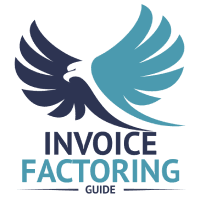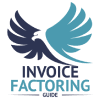
“What happens if my customer doesn’t pay the invoice?” This is one of the most common concerns businesses have before they begin factoring. It’s a great question. After all, factoring works like a cash advance – you’re receiving money you’ve already earned. Under ordinary circumstances, your customer clears the balance when they pay their invoice, leaving your business with nothing to pay back. But, if a customer is seriously delinquent or doesn’t pay at all, your company may be responsible for paying the advance back.
The good news is that this situation is rare because factoring companies follow specific processes to minimize the likelihood of non-payment. Plus, depending on the terms of your agreement, they offer ways to minimize the strain or eliminate your risk altogether. We’ll explore the various ways they address risk management and how factoring companies handle unpaid invoices below.
Background and Benefits of Invoice Factoring
Factoring is a financial transaction and a type of business funding in which your business sells its accounts receivable at a discount to a third party called a factor or factoring company. This process allows your business to obtain immediate cash, which can be especially valuable if your company has longer invoice payment terms or needs to manage cash flow more effectively.
The Invoice Factoring Process
- Invoice Issuance: Your business first issues the invoice to your customer for goods or services rendered.
- Sale of Invoice: Your business then sells the unpaid invoice to a factoring company at a percentage of its total value. This rate typically ranges between 95 to 99 percent, depending on considerations such as the industry, the creditworthiness of your customers, and your historical relationship with the factoring company.
- Immediate Cash Access: The factoring company immediately provides your business with an advance on a portion of the invoice’s value. This infusion of cash helps you cover operational costs without waiting for your customer payment period, which could be 30, 60, or even 90 days.
- Customer Payment: The factoring company then takes on the responsibility of collecting payment directly from your customer.
- Settlement: Once your customer pays the invoice, the factoring company releases the remaining balance of the invoice value to you, minus the factoring fee.
Benefits of Invoice Factoring
- Improved Cash Flow Management: By converting sales on credit terms into immediate cash, your business can maintain a steadier cash flow. This is crucial for covering regular expenses like payroll, inventory purchases, and other operational costs.
- Quick Access to Working Capital: Unlike traditional business loans, which can take weeks or months to secure, invoice factoring can give your business fast access to working capital, often within one or two days.
- Credit Risk Mitigation: Factoring companies can help shield your business from non-payment in various ways.
- Focus on Core Business Activities: With the factoring company handling collections, your business can focus more on core activities such as sales, customer service, and product development instead of managing receivables.
Risk Management Strategies in Invoice Factoring

Around one in ten B2B invoices becomes uncollectable, Atradius reports. Risk management is a crucial aspect of invoice factoring, primarily because the factoring company assumes significant risk by purchasing the invoices. Effective risk management strategies help mitigate potential losses from non-payment by the end customers. We’ll cover some of the primary strategies used below.
Credit Checks on Customers
One of the first and most vital steps in risk management for factoring companies is conducting thorough credit checks on the customers whose invoices are being factored. This involves:
- Assessing Creditworthiness: Before agreeing to purchase invoices from your business, the factoring company evaluates the credit history and financial health of the customers to whom your business has issued the invoices. This assessment helps determine how likely the customers are to fulfill their payment obligations.
- Credit Scoring and Limits: Based on the credit check, the factoring company assigns each customer a credit score and sets credit limits, which dictate the maximum amount of credit the factoring company is willing to advance against invoices issued to that customer.
- Ongoing Monitoring: Credit checks are not a one-time activity. Factoring companies continuously monitor customers’ creditworthiness to catch potential issues early. This ongoing monitoring can include periodically reviewing customers’ financial statements, checking for any liens or judgments against them, and updating their credit scores as needed.
Diversification of Invoice Portfolio
Factoring companies can spread their risk by managing a diverse portfolio of invoices from different industries and debtors. This diversification helps ensure that the failure of one debtor to pay does not disproportionately impact the factoring company’s overall financial health.
Setting Appropriate Advance Rates
Factoring companies manage risk by adjusting the advance rate—the percentage of the invoice value that is paid upfront to the business when the invoice is sold. A lower advance rate may be used for customers with weaker credit, which provides the factoring company with a larger buffer to cover potential losses from non-payment.
Effective Collection Practices
Strong and effective collection practices are essential for managing risk in invoice factoring. This includes:
- Professional Collections Team: Employing experienced and professional collections personnel who understand how to manage communications tactfully and effectively with customers to ensure timely payments.
- Clear Payment Terms: Establishing and communicating clear payment terms from the outset to ensure that customers understand their payment obligations.
- Proactive Follow-ups: Regularly following up with your customers before invoices are due to remind them of upcoming payments and to address any issues that might prevent timely payment.
How Factoring Companies Handle Unpaid Invoices
When dealing with unpaid invoices, factoring companies employ several strategies depending on the agreement type: recourse or non-recourse factoring. Each has its own mechanisms for handling situations where customers fail to pay the invoices.
Recourse Factoring
In recourse factoring, your business retains the risk of non-payment by the end customer. This is the more common and typically less expensive form of factoring because the factoring company has a fallback position if the invoice isn’t paid.
Handling Unpaid Invoices in Recourse Factoring
- Notification and Reconciliation: If an invoice remains unpaid by the end of the payment period, the factoring company will notify your business. You’re usually given a short grace period to resolve the issue with their customer.
- Substituting the Invoice: Often, factoring companies allow your business to substitute a non-paying invoice with another eligible invoice from a reliable customer. This helps maintain the cash flow for your business without immediate financial penalty, except for possibly extended financing fees.
- Drawing from the Reserve: Factoring arrangements typically include creating a reserve account, where a percentage of the total invoice amount is held back until payment by the customer is received. In cases of non-payment, funds from this reserve can be used to cover the shortfall. After the reserve is exhausted, your business must make up any remaining balance.
- Direct Reimbursement: If there are no substitutes or insufficient reserve funds, your business must reimburse the factoring company directly for the unpaid invoice amount.
Non-Recourse Factoring
Non-recourse factoring provides your business with protection against the risk of non-payment due to customer insolvency (bankruptcy). Here, the factoring company takes on more risk and, therefore, usually charges higher fees.
Handling Unpaid Invoices in Non-Recourse Factoring
- Customer Insolvency: In cases where the customer becomes insolvent, the factoring company absorbs the loss. The business that sold the invoices does not need to reimburse the factoring company.
- Commercial Disputes: It’s important to note that non-recourse factoring typically does not protect against disputes over product or service quality. If an invoice is unpaid due to disputes, depending on the specific terms of the factoring agreement, it might still be charged back to the business.
Get Paid Faster and Minimize Unpaid Invoices with Factoring
Factoring companies do a great deal of work to ensure invoices are paid in full in a timely manner. This means you’re less likely to see delinquencies or have issues with non-payment. However, it’s essential to discuss the specifics with your factoring company, as each may have its own guidelines, and many can tailor your agreement to your needs. To begin accelerating your cash flow, request a complimentary factoring quote.

Frequently Asked Questions
How do factoring companies manage the risk of non-payment?
Factoring companies manage non-payment risk by conducting thorough credit checks on the debtor customers, setting appropriate credit limits, and continuously monitoring the financial health of these customers.
What options do businesses have if an invoice is unpaid in recourse factoring?
Businesses can generally substitute the unpaid invoice with another creditworthy invoice, or the factoring company may draw from a reserve account to cover the shortfall, with any remaining balance required to be paid by the business.
What does non-recourse factoring cover in terms of non-payment?
Non-recourse factoring protects businesses against the risk of non-payment due to the customer’s insolvency, with the factoring company absorbing the financial loss in such cases.
Can a factoring company take legal action if an invoice remains unpaid?
Yes, a factoring company can take legal action to recover funds from an unpaid invoice, although they typically prefer negotiation and mediation to maintain business relationships.
How do factoring companies use reserve accounts for unpaid invoices?
Reserve accounts hold back a percentage of the invoice value; if an invoice goes unpaid, the factoring company uses funds from this reserve to cover part of the advance given to the business.
What are the implications of substituting an unpaid invoice in a factoring agreement?
Substituting an unpaid invoice allows the business to maintain its funding level without immediate financial penalties, provided the new invoice comes from a creditworthy customer.
What measures do factoring companies take to ensure customer payment before purchasing invoices?
Factoring companies perform detailed credit assessments of the debtor customers and may require personal guarantees or set specific credit terms based on the customer's creditworthiness.
How does credit checking reduce the risk of invoice non-payment?
Credit checks help factoring companies assess the financial stability and payment history of customers, enabling them to avoid high-risk debtors and reduce the likelihood of non-payment.
What is the typical process for handling a dispute over an unpaid invoice?
In the event of a dispute, the factoring company typically works with both the client and the debtor to resolve the issue, which may involve mediation or revising the payment terms if necessary.

About Invoice Factoring Guide
Related Articles
Get an instant funding estimate
Results are estimates based on the calculated rate and the total invoice amount provided.
Actual rates may vary.
Request a Factoring Rate Quote
PREFER TO TALK? Call us at 1-844-887-0300










